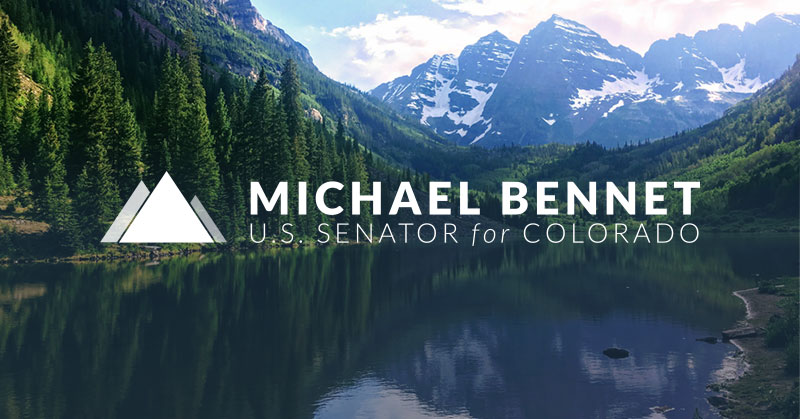Source: United States Senator for Colorado Michael Bennet
Washington, D.C. – Colorado U.S. Senators Michael Bennet, a member of the U.S. Senate Finance Committee, and John Hickenlooper, a member of the U.S. Senate Energy and Natural Resources Committee, and a bipartisan group of their colleagues introduced the Energy Sector Innovation Credit (ESIC) Act. This bipartisan proposal will support nascent clean energy technologies – diversifying our energy portfolio, cutting emissions, and helping to rapidly scale these technologies to market. According to a report by the International Energy Agency, approximately 40% of cumulative CO2 emissions reductions needed to meet sustainability targets rely on technologies not yet commercially deployed on a mass-market scale.
“Meeting our climate goals demands an all-of-the above approach – and that includes meaningful investment in clean energy innovation,” said Bennet. “ESIC will help jumpstart the development of promising emerging technologies vital to cutting greenhouse gas emissions and fighting climate change, accelerating their deployment and helping ensure they can compete with higher-emitting energy sources in the market.”
“Clean energy must be affordable if we’re going to meet our emissions goals,” said Hickenlooper. “That means we must innovate. This tax credit will enable us to scale clean energy solutions while keeping costs down for consumers.”
The Energy Sector Innovation Credit is a technology-inclusive, flexible investment tax credit (ITC) or production tax credit (PTC) designed to promote innovation across a range of clean energy technologies, including generation, storage, carbon capture, and hydrogen production.
The ESIC:
- Promotes clean energy innovation by allowing up to a 40% ITC or 60% PTC for low market penetration technologies across a range of energy sources.
- Phases out credits as technologies mature, which provides an on-ramp for the most innovative technologies to get to market and then compete on their own, rather than allowing Congress to pick winners and losers when temporary credits expire.
- Groups technologies substantively different from one another as determined by experts at the Department of Energy (DOE), national labs and other stakeholders.
- Provides flexibility for unforeseen clean energy technologies to be eligible for ESIC by including an expedited-consideration provision for Congress to take up new technology recommendations from DOE.
In addition to Bennet and Hickenlooper, this legislation is co-sponsored by U.S. Senators Mike Crapo (R-Idaho), Sheldon Whitehouse (D-R.I.), John Barrasso (R-Wyo.), and Jim Risch (R-Idaho).
U.S. Representatives Tom Reed (R-N.Y.) and Jimmy Panetta (D-Calif.) have introduced companion legislation in the U.S. House of Representatives.
The bill text is available HERE. A section-by-section is available HERE. A one-pager is available HERE.
ESIC is supported by a number of industry and environmental groups, including ClearPath Action, Idaho Falls Power, the Evangelical Environmental Network, the Utah Associated Municipal Power Systems, Citizens’ Climate Lobby, the U.S. Nuclear Industry Council, the Nuclear Energy Institute, Carbon180, Bipartisan Policy Center Action, The Nature Conservancy, American Conservation Coalition, ThirdWay, Nuclear Innovation Alliance, Arnold Ventures, Clean Air Task Force, Citizens for Responsible Energy Solutions, Xcel Energy, American Public Power Association, Oklo Inc., NuScale Power, Geothermal Rising, Fervo Energy, Ormat, Geothermal Resource Group, GeothermEx, Long Duration Energy Storage of California, Environmental Defense Fund, Carbon Utilization Research Council, Clean Hydrogen Future Coalition, and National Rural Electric Cooperatives Association.
